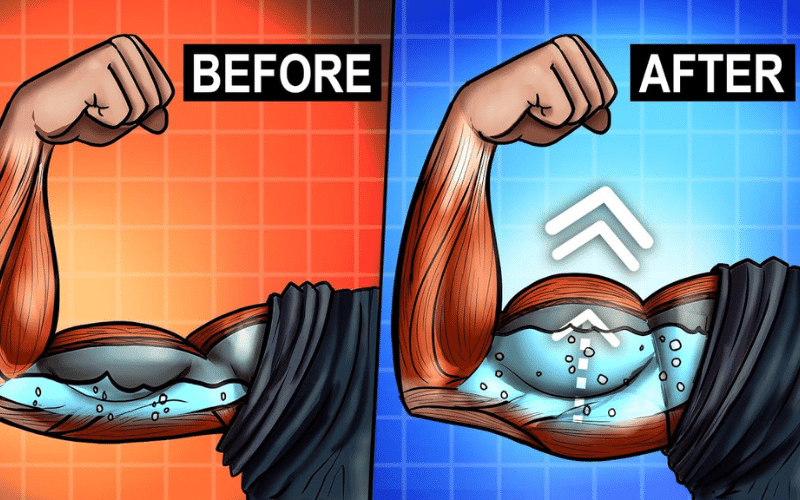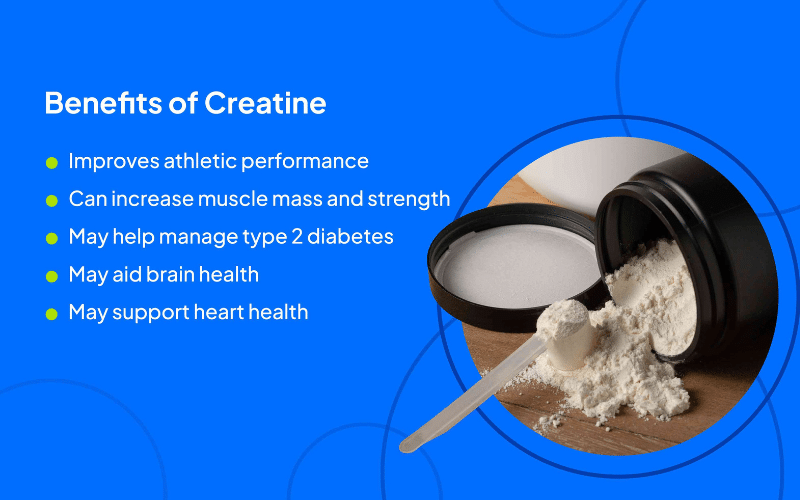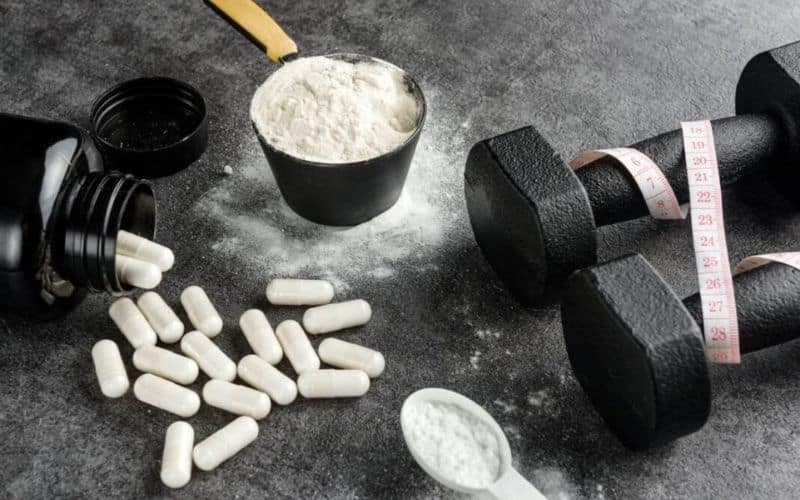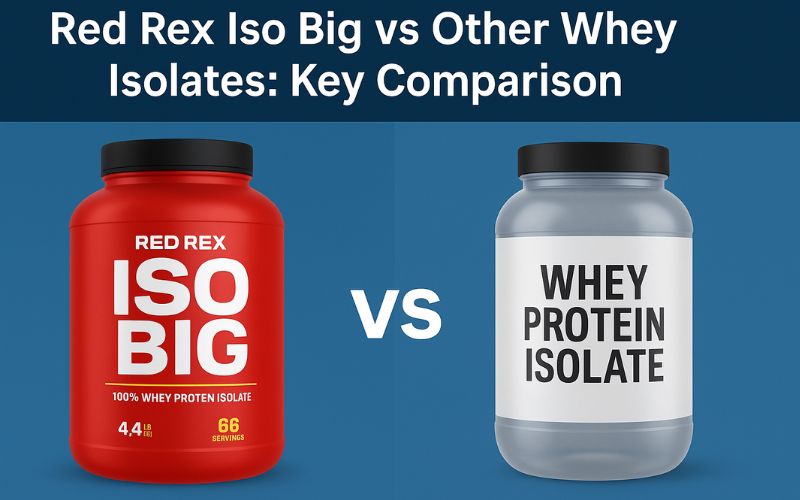Creatine for Endurance Athletes and Runners: Boosting Performance, Recovery & Resilience
For decades, creatine has been considered the go-to supplement for bodybuilders and powerlifters seeking explosive strength and muscle mass. But recently, a growing body of research has challenged that narrow view. More endurance athletes and runners are now turning to creatine—not for bulk, but for enhanced performance, recovery, and cognitive stamina.
If you’re an endurance athlete wondering whether creatine is worth adding to your routine, this article answers all your questions. From science-backed benefits and usage protocols to myth-busting and real-world case studies, we’ll explore exactly how creatine for endurance athletes and runners can help you go the distance—faster, smarter, and stronger.
What is Creatine and How Does It Work?

Creatine is a naturally occurring compound found in muscle cells. It helps produce adenosine triphosphate (ATP), the body’s primary source of energy during high-intensity exercise. Supplementing with creatine increases your phosphocreatine stores, allowing your body to regenerate ATP faster, especially during short bursts of intense activity.
Key Functions of Creatine:
- Enhances cellular energy production
- Supports muscle hydration and volumization
- Improves work capacity and training output
- Aids recovery and inflammation reduction
Types of Creatine:
- Creatine Monohydrate (most researched and cost-effective)
- Buffered Creatine (Kre-Alkalyn) – gentler on the stomach
- Creatine HCl – more soluble, possibly better for sensitive individuals
- Creatine Nitrate – newer form with potential vasodilation benefits
While originally embraced by power athletes, creatine’s physiological impact—particularly on energy systems and recovery—makes it increasingly relevant for runners, cyclists, triathletes, and other endurance athletes.
Is Creatine Beneficial for Endurance Athletes and Runners?

Improves High-Intensity Sprint Performance
Endurance sports are not purely aerobic. Training and races often include intervals, hill repeats, and finishing sprints, all of which tap into the anaerobic energy system. Studies show that creatine supplementation can increase peak power output, shorten recovery between sprints, and reduce fatigue during repeated efforts.
🔬 A 2022 meta-analysis published in Frontiers in Physiology confirmed creatine’s effectiveness in improving high-intensity interval performance in endurance-trained athletes.
Enhances Recovery Between Training Sessions
Creatine has been shown to reduce exercise-induced muscle damage and inflammation, leading to faster recovery. This is especially valuable for runners doing back-to-back training sessions, tapering for races, or managing training volume spikes.
Supports Muscle Preservation During Long Runs
Long-distance endurance training can cause muscle breakdown (catabolism), particularly if nutrition or recovery is suboptimal. Creatine helps preserve lean muscle mass and maintain muscular endurance—without adding unnecessary bulk.
Boosts Brain and Cognitive Function Under Fatigue
Endurance events often involve mental fatigue, especially in ultramarathons or Ironman events. Creatine is also stored in the brain and plays a role in neurological energy metabolism, which can help with focus, reaction time, and decision-making under stress.
May Reduce Risk of Injury and Overtraining
By improving training efficiency, aiding recovery, and supporting neuromuscular coordination, creatine may indirectly reduce the risk of overuse injuries, fatigue-related breakdowns, and overtraining syndrome—common pitfalls in endurance sports.
Common Myths About Creatine for Endurance Training

“Creatine causes water retention and weight gain”
This myth persists but lacks nuance. Yes, intracellular water retention may occur initially, especially in a loading phase—but this hydrates muscle cells, improves performance, and rarely affects performance negatively in endurance athletes. Studies show the average gain is around 1–2 kg, mostly in lean mass and water within the muscle—not fat.
“Creatine is only for bodybuilders”
Creatine supports short-term energy systems, which are involved in all sports. Whether you’re sprinting to the finish line or powering through a tough training block, creatine enhances output and recovery for all athletic domains, including endurance.
“Creatine hinders long-distance performance”
Quite the opposite. Creatine improves lactate threshold, recovery rate, and neuromuscular efficiency. These benefits help long-distance runners delay fatigue and improve pacing in races.
How to Use Creatine as a Runner or Endurance Athlete
Recommended Dosage and Timing
There are two typical approaches:
- Loading Phase: 20g/day (split into 4 x 5g doses) for 5–7 days, followed by 3–5g/day for maintenance.
- No-Load Method: 3–5g/day consistently, with performance benefits appearing after 2–3 weeks.
Best taken post-workout with a carb-rich meal or shake to enhance absorption via insulin-mediated transport.
Best Form of Creatine for Runners
- Creatine Monohydrate remains the gold standard. It’s well-researched, cost-effective, and safe.
- For those with digestive issues, Creatine HCl or Buffered Creatine may be gentler alternatives.
How to Stack Creatine with Other Endurance Supplements
To amplify benefits:
- Combine with electrolytes for hydration and muscle function.
- Add to carb-protein recovery shakes post-training.
- Pair with beta-alanine for enhanced lactic acid buffering.
When Not to Use Creatine
- If you have kidney disease, consult a physician.
- Avoid GI distress or active dehydration.
- Some individuals may experience bloating or stomach upset—try smaller doses or alternative forms.
Conclusion
Creatine for endurance athletes and runners is no longer a niche trend—it’s a science-backed tool to improve high-intensity performance, speed up recovery, preserve lean muscle, and support mental sharpness during fatigue.
Far from being just for gym-goers, creatine is a safe and effective addition to any well-planned endurance training protocol.
FAQs
Is creatine good for marathon runners?
Yes. While marathons are aerobic, creatine supports high-effort surges, recovery, and cognitive focus during the race.
Will creatine slow me down as a distance runner?
No. Water retention is minimal, and the performance gains in sprint finish, pacing, and recovery usually outweigh any concerns.
How long does it take to see results with creatine for endurance?
With a loading phase, improvements may be seen in 5–7 days. Without loading, allow 2–3 weeks of consistent use.









Add comment